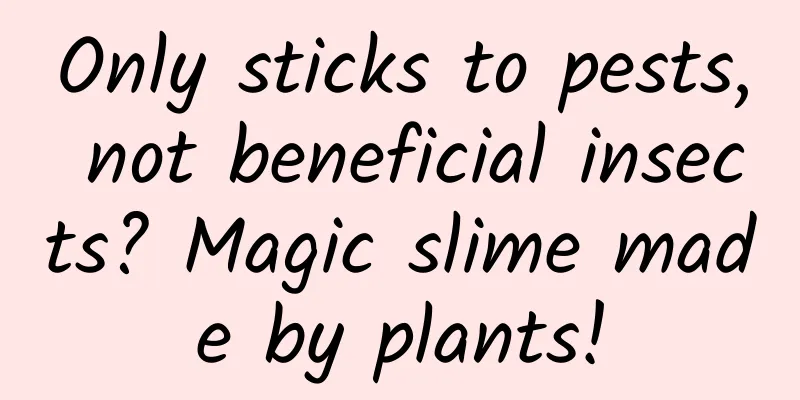Only sticks to pests, not beneficial insects? Magic slime made by plants!

|
Popular Science Times (Intern Wang Yuke) Sticky traps made of tiny oil droplets can be sprayed on plants to catch small pests, while leaving larger insects such as bees unharmed. Researchers who developed the product hope it will help reduce the use of chemical pesticides. Recently, the Proceedings of the National Academy of Sciences of the United States published an academic article titled "Using sticky balls to mimic natural deterrent strategies in plants". Researchers represented by Professor Thomas Kodeger of Wageningen University in the Netherlands said that they found that some plants have sticky insect-catching hairs. This hair is called glandular trichomes. Cherry tomatoes may be the most typical example of plants with glandular hairs, but many other plants also have this glandular hair to resist herbivorous pests. As the world's population and food production continue to grow, the use of chemical pesticides is also increasing. Because chemical pesticides are harmful to the environment and pest resistance is increasing, there is a need for a sustainable and effective alternative to pesticides. Inspired by nature, the researchers imitated a defense strategy of plants against pests - glandular hairs, oxidized certain plant oils, and then mixed them vigorously with water to form tiny droplets with diameters mostly less than one millimeter, which would not clog the sprayer. The adhesive material made in this way has adhesion even under low contact, and can attach to plants for weeks after spraying. The adhesive particles produced are a physical insecticide. The researchers found that spraying a suspension of particles was effective in sticking to the target pest, thrips, which are small arthropod pests that can damage crops through virus transmission. Spray traps work on the same principle as sticky paper or glue traps that have long been used to catch plant pests, physically trapping the insects. The advantage of spray traps is that the spray is extracted from the plant and will not stick to larger insects, such as bees, hoverflies and other beneficial insects. |
>>: Electric bikes always cause fires, so should they be banned? Professionals respond...
Recommend
Ah? This pavilion can make it rain by itself?
Did you know that there is an interesting pavilio...
All Tibetan areas in Sichuan have been lifted out of poverty! How did the local government do it?
On February 18, the Sichuan Provincial Government...
Apple hasn’t lost its ability to innovate. It’s replicating the iPhone’s success in artificial intelligence.
The slowdown in smartphone sales is a well-known ...
Apple's hardcore fans complain: software quality is declining
Marc Almonte, who enjoys a high reputation in the...
Tips and precautions for placing Tik Tok information flow ads!
As an emerging advertising model, information flo...
Analyzing the logic of hot-selling domestic brands from three dimensions
In the darkness, only the hot products can bloom ...
He was determined to serve the country with science, climb the peak of physics, and open the door for Peking University to become a world-class university.
On the road of scientific exploration, countless ...
How a newbie can enter the film and television commentary track from 0 to 1
How can a novice enter the film and television co...
A conversation with Wannianli CTO Luo Shilong about the programmer's brilliant transformation
[51CTO.com original article] In the Internet indu...
How to write the competitive product word creative ideas for bidding hosting companies?
We have mentioned before that visitors have three...
How to operate KOL influencer marketing?
As more and more brands use internet celebrities ...
China Automobile Dealers Association: Monthly Report on New Energy Vehicle Industry in November 2021
01. Market performance Overall performance of the...
Practical skills for setting up a Baidu search promotion account!
For search promotion, a healthy account structure...
Write a good product promotion plan, only these 6 tips
I have no idea how to promote a new product every...
The competition in new energy sources has started a new round of elimination. How can domestic brands innovate the old overseas expansion paths of Japanese and Korean brands?
It is almost well known that Japanese cars are se...









